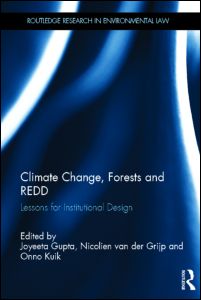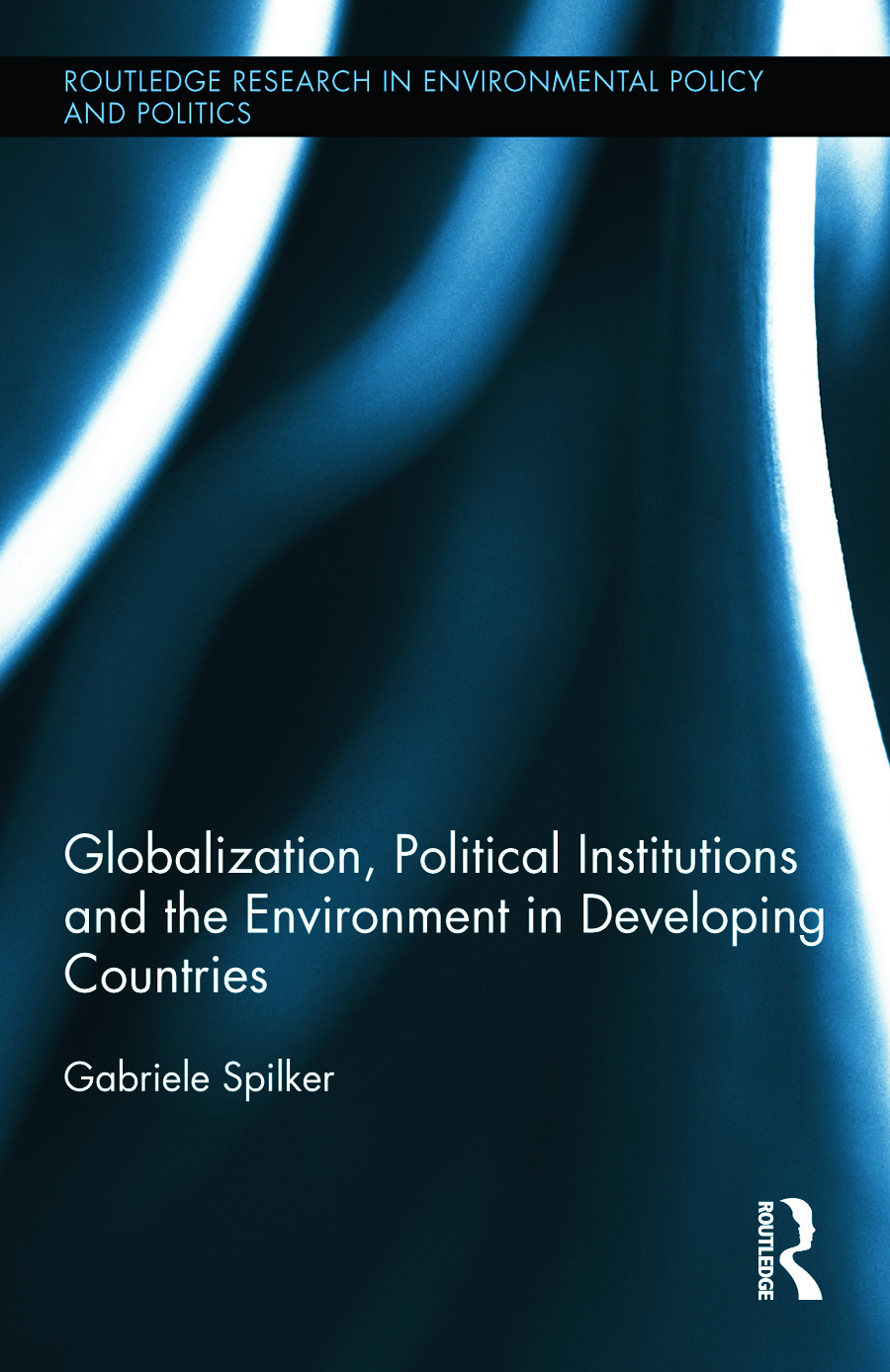Conference on the Forty Years of Environmental Protection in China
Date: 3-5 Jan 2013
Venue: The Chinese University of Hong Kong
Link for more information and enrollment:
http://www.grm.cuhk.edu.hk/eng/news/confnews/iees/index.html
 |
 |
 A search for new methods for dealing with climate change led to the identification of forest maintenance as a potential policy option that could cost-effectively reduce greenhouse gas emissions, with the development of measures for Reducing Emissions from Deforestation and Forest Degradation (REDD). This book explores how an analysis of past forest governance patterns from the global through to the local level, can help us to build institutions which more effectively deal with forests within the climate change regime. The book assesses the options for reducing emissions from deforestation in developing countries under the international climate regime, as well as the incentives flowing from them at the national and sub national level and examines how these policy levers change human behaviour and interface with the drivers and pressures of land use change in tropical forests. The book considers the trade-offs between certain forestry related policies within the current climate regime and the larger goal of sustainable forestry.
A search for new methods for dealing with climate change led to the identification of forest maintenance as a potential policy option that could cost-effectively reduce greenhouse gas emissions, with the development of measures for Reducing Emissions from Deforestation and Forest Degradation (REDD). This book explores how an analysis of past forest governance patterns from the global through to the local level, can help us to build institutions which more effectively deal with forests within the climate change regime. The book assesses the options for reducing emissions from deforestation in developing countries under the international climate regime, as well as the incentives flowing from them at the national and sub national level and examines how these policy levers change human behaviour and interface with the drivers and pressures of land use change in tropical forests. The book considers the trade-offs between certain forestry related policies within the current climate regime and the larger goal of sustainable forestry.
 Frontiers of Energy and Environmental Engineering brings together 192 peer-reviewed papers presented at the 2012 International Conference on Frontiers of Energy and Environment Engineering, held in Hong Kong, December 11-13, 2012. The aim of the conference was to provide a platform for researchers, engineers and academics as well as industry professionals from all over the world to present their activities in the field of energy and environmental engineering as well as share research results.
Frontiers of Energy and Environmental Engineering brings together 192 peer-reviewed papers presented at the 2012 International Conference on Frontiers of Energy and Environment Engineering, held in Hong Kong, December 11-13, 2012. The aim of the conference was to provide a platform for researchers, engineers and academics as well as industry professionals from all over the world to present their activities in the field of energy and environmental engineering as well as share research results.
 Though industrialized countries are usually the ones indicted when environmental pollution is discussed, over the few last years the rate of emissions in developing countries has increased by a startling amount. The fallout from this increase is evidenced by the struggle of cities like Beijing to improve their air quality. Yet there also exist developing countries such as Thailand that have managed to limit their emissions to more tolerable levels, raising the question: why are some developing countries more willing or able to take care of their environment than others?
Though industrialized countries are usually the ones indicted when environmental pollution is discussed, over the few last years the rate of emissions in developing countries has increased by a startling amount. The fallout from this increase is evidenced by the struggle of cities like Beijing to improve their air quality. Yet there also exist developing countries such as Thailand that have managed to limit their emissions to more tolerable levels, raising the question: why are some developing countries more willing or able to take care of their environment than others?
 Sustainability is a phenomenon that must be pursued in a complex system of interrelated elements of business, society, and ecology. It is important to gain an understanding of these elements, the interplay between them, and the behavior of the system. This book explores the business-societal-and-ecological system in which sustainable innovation has to be envisioned, conceptualized, realized, and improved. Author Bart Bossink offers insight into the systematic coherence of drivers of eco-innovation and sustainability utilizing a three-part approach: (1) eco- and sustainable innovation in business is based on ideas and people who cooperatively develop these ideas; (2) groups of people, organized in commercial firms, must realize these ideas cooperatively and create the innovations that can conquer the market; and (3) that people from governmental, non-governmental, not-for-profit, research, and commercial organizations can build institutional arrangements that stimulate these sustainable innovations, changing both industry and society.
Sustainability is a phenomenon that must be pursued in a complex system of interrelated elements of business, society, and ecology. It is important to gain an understanding of these elements, the interplay between them, and the behavior of the system. This book explores the business-societal-and-ecological system in which sustainable innovation has to be envisioned, conceptualized, realized, and improved. Author Bart Bossink offers insight into the systematic coherence of drivers of eco-innovation and sustainability utilizing a three-part approach: (1) eco- and sustainable innovation in business is based on ideas and people who cooperatively develop these ideas; (2) groups of people, organized in commercial firms, must realize these ideas cooperatively and create the innovations that can conquer the market; and (3) that people from governmental, non-governmental, not-for-profit, research, and commercial organizations can build institutional arrangements that stimulate these sustainable innovations, changing both industry and society.

International Collaboration Towards Sustainable Resource Circulation And Management |

Japan's Bilateral Carbon Finance: A New Opporunity For India |
| File name | Size |
|---|---|
| 201212kenta_ushui_sustainability_outlook_4218.pdf | 618 KB |